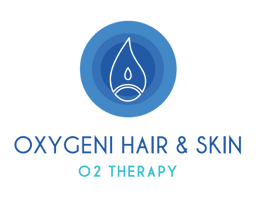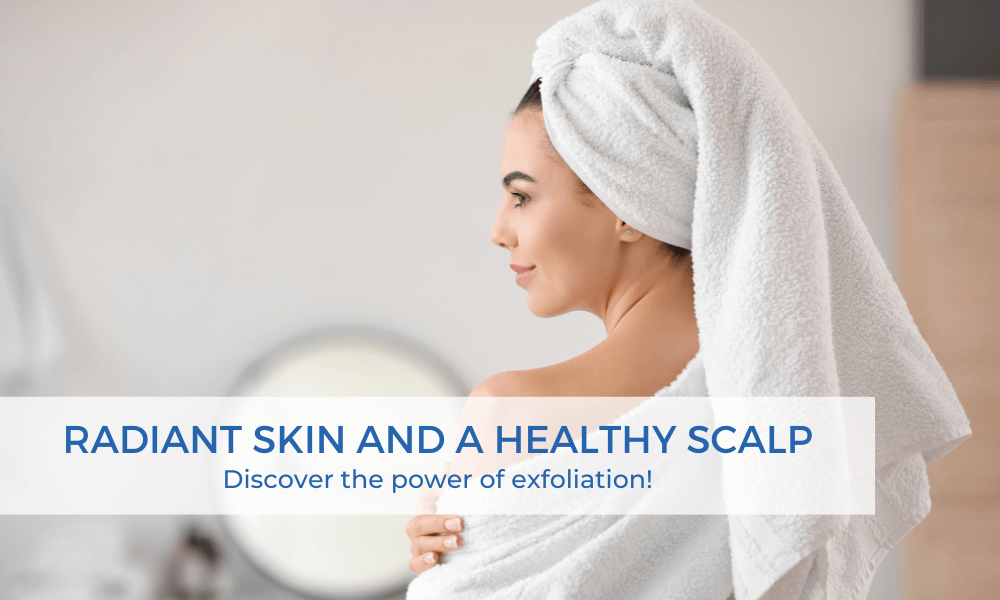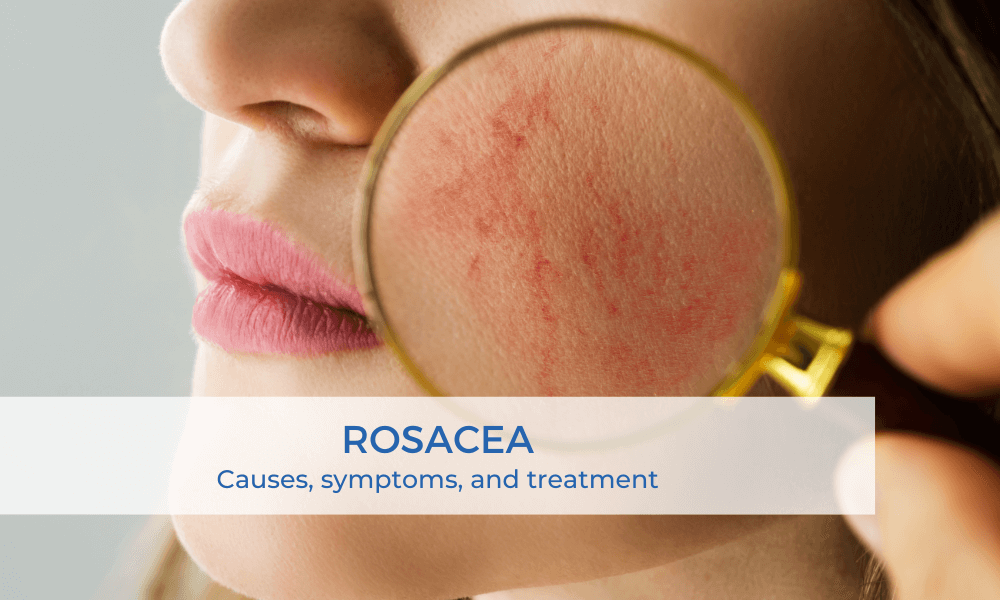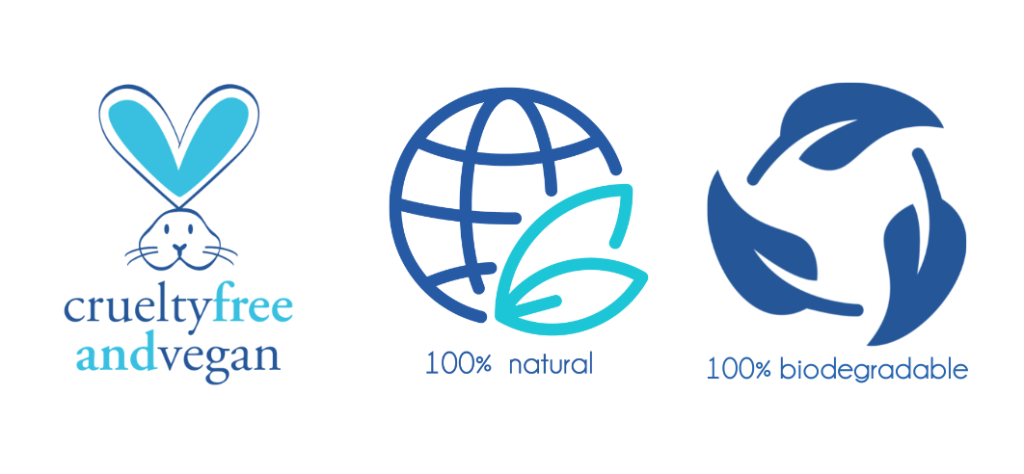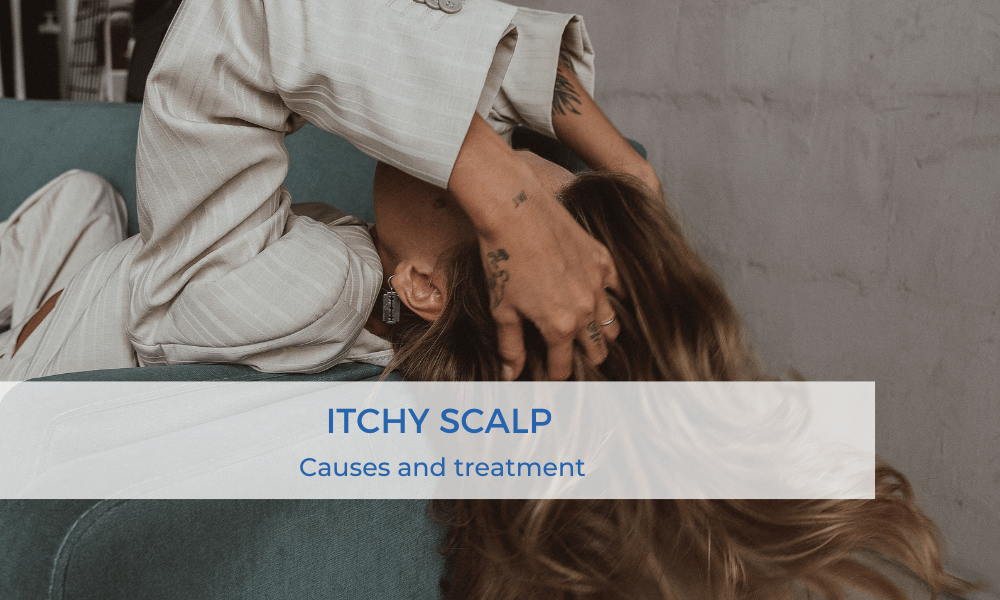
ITCHY SCALP - CAUSES AND TREATMENT
Itchy scalp is a familiar issue for many, but few realize that it’s a scalp problem that requires treatment. It’s important not to take it lightly. If we ignore the early signs and the itching worsens, it could lead to more serious skin conditions.
Symptoms of itchy scalp include itching, flaking, dandruff, dry, red, and irritated scalp, and in severe cases, the formation of sores on the scalp. If you experience these symptoms for a prolonged period, or if they worsen and other problems arise alongside them, make sure to seek professional care!
Itchy scalp can make our lives miserable, and there are many underlying causes behind it. External and internal factors can contribute to the development of an itchy scalp. Among external factors are harsh, synthetic ingredients in hair and skin care products that dry out and irritate the skin, making it dry, red, and itchy. Weather conditions also play a role, as dry, cold air easily dries out the scalp, leading to flaking and itching. Internal factors also play a role, such as improper nutrition, stress, or some form of intolerance.
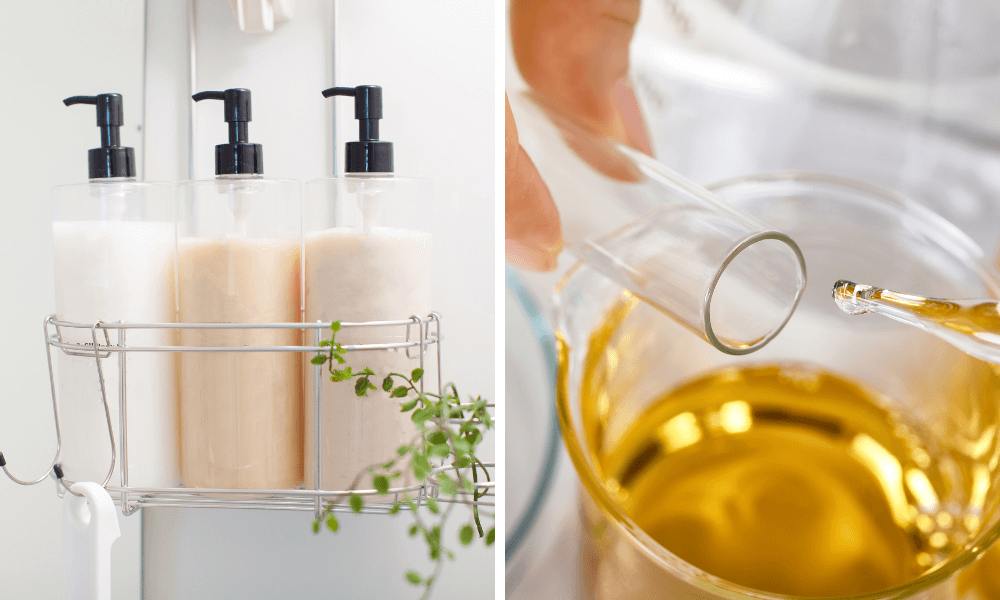
WHAT ARE THE NEGATIVE FACTORS BEHIND ITCHY SCALP?
Numerous physiological and immune system issues could be behind an itchy scalp. One of the most common is intolerance. Food intolerances underlie many hair and skin problems, and chemicals from an unhealthy lifestyle contribute to their development. It’s no different with an itchy scalp. If someone has any intolerance, it poses a risk for the development of the skin conditions listed in the previous section, which come with itching. If you notice unusual symptoms such as redness, acne, irritation, or itching, you should consider getting a food intolerance test, as it could be the trigger of potential skin issues.
If someone is allergic to food or some cosmetic ingredient, redness, and allergic reactions may be triggered, which can also affect the scalp. Additionally, let’s not forget about the problems that may arise as a consequence of medical treatments. In such cases, numerous chemicals enter the body, and their effects may also manifest on the scalp.
WHAT DERMATOLOGICAL DISEASES ARE BEHIND ITCHY SCALP?
In addition to external and internal factors, skin diseases are among the causes of itchy scalp. Many scalp and skin diseases include symptoms of dry scalp, so it may be a clue that you are struggling with some other skin problem alongside the unpleasant feeling.
Typically, oily and dry dandruff are accompanying symptoms, and dandruff-related scalp diseases also involve itching, such as the autoimmune disease – seborrhea, about which you can read more here. Itching can also be caused by either too dry or too oily skin. In the case of deep-layer dehydration, the lower layers of the skin become dehydrated, causing the outer layer to become dry and flaky. Underactive sebaceous glands result in dry skin, while overactivity leads to oily skin, where inflammations and bacteria can proliferate, causing itching and further issues.
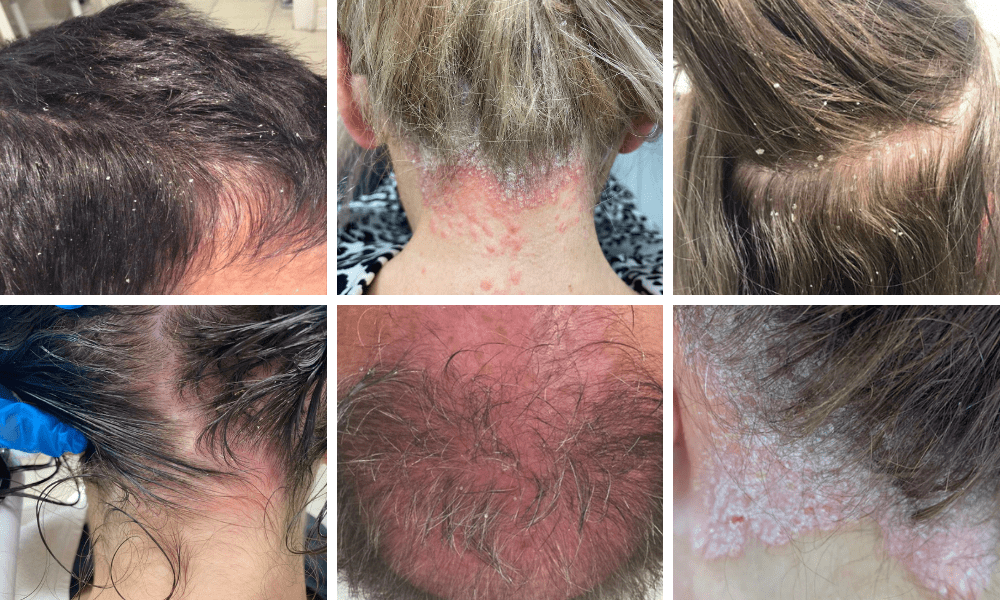
Various diseases may also be associated with an itchy scalp, such as autoimmune diseases and hormonal problems. Chemicals, pollutants, and an unhealthy lifestyle can have a detrimental effect on our hormone balance, which, if not functioning properly, can lead to various hair, scalp, and skin problems, including itchy scalp.
In the case of autoimmune diseases, the immune system attacks the healthy cells, leading to various issues and diseases, such as hair loss or other scalp conditions. The itchy scalp can be a symptom of various autoimmune diseases, including psoriasis, seborrhea, and eczema. Read more about autoimmune diseases by clicking here!
Fungal infection of the scalp can lead to itching and unbearable sensations. The skin fungal infection is called candidiasis. Candida is a fungus that aids in nutrient absorption and digestion when at the right levels in the body. If overproduced, it can cause typical candida symptoms. Scalp fungal infection causes an itchy rash on the scalp. The rash may be red or purple and may appear in various shapes. The rash can crack and form scabs. This scabbing can also cause hair loss. If detected and treated in time, scalp fungal infections usually clear up quickly.
DRY, ITCHY SCALP DUE TO DEFICIENCIES IN THE BODY
DEHYDRATED BODY - WATER SHORTAGE
Dry skin is a common symptom of dehydration and insufficient water consumption. In this case, we may notice flaky, itchy, red patches on our skin and scalp. The simplest and best solution to this is to drink enough water every day. An average person should consume a minimum of 2 liters of liquid daily.
We could list countless reasons why water benefits our health, including alleviating itching. Water hydrates our skin from the inside, and filters out toxins that can cause problems and irritation. In our blog, you can read about the ways you can hydrate your body with fluids, foods, and our products, both externally and internally.
VITAMIN DEFICIENCIES
Itchy scalp can also develop when there is a deficiency of some vitamin or mineral in our body, and the body cannot function properly.
A common cause of itchy scalp is often vitamin D deficiency. In the case of severe vitamin D deficiency, autoimmune conditions such as psoriasis or eczema may develop. To remedy this, we can consume dietary supplements, preferably natural vitamins – and we can also introduce vitamin D into our bodies through our diet, for example, by consuming mushrooms, oily fish, or oatmeal.
One symptom of vitamin A deficiency to watch out for is itching of the skin, which can also extend to the scalp. Vitamin A is a fat-soluble vitamin that performs many important functions in the body. It is advisable to consume foods high in vitamin A, such as sweet potatoes, carrots, fish (tuna), squash, dark leafy greens, cantaloupe, lettuce, bell peppers, pink grapefruit, and broccoli.
HEAVY METAL OVERLOAD
The problem of itchy scalp can also be associated with heavy metal overload. Lead, mercury, and cadmium are all heavy metals that, when accumulated in the body, can indicate various skin problems – headaches, allergies, sleep disturbances – among other diseases. These substances can come from poor quality water, food loaded with additives, cosmetics containing chemicals, medication, and polluted air.
If we want to reduce the heavy metal load on our bodies, we should turn to natural solutions. These include natural vitamins – it is important not to choose artificial ones, as they also contain numerous additives – and teas, superfoods, and herbs. One such example is cilantro, which is particularly good for treating this problem, as it detoxifies the body and helps eliminate heavy metals from the body.
WHAT ARE THE MOST COMMON CHEMICALS TO AVOID IN CASE OF AN ITCHY SCALP?
Although many women dye their hair, viewing it as a great way to rejuvenate their appearance, it’s essential not to overlook the potential harm it can cause to their health. Hair dyeing involves harsh treatment, and not every substance that comes into contact with the scalp is welcomed by it. The ingredients found in hair dye can attack from multiple angles: they can be absorbed through the skin and also inhaled. With aggressive hair dyes, burning and itching sensations are often experienced the day after dyeing, but sometimes they can occur immediately, and later the scalp may even develop sores.
ARTIFICIAL FRAGRANCES
These components can cause severe skin irritation. It’s no coincidence that products intended for babies or those with sensitive skin contain minimal or, in most cases, no fragrance at all – these are true fragrance-free cosmetics! However, it’s worth noting that in the ingredient list of 100% natural products, the term “perfume” exclusively indicates natural fragrances, so you don’t have to worry that these products may cause irritation due to fragrances.
AMMONIA
Dye manufacturers have long used ammonia in their products because, on the one hand, ammonia can remove existing hair color, and on the other hand, it can open up the hair’s outer layer (the cuticle), facilitating the entry of coloring pigments into the hair structure. However, when ammonia meets water, ammonium hydroxide is formed, which is highly irritating to the skin. During the application of hair dyes containing ammonia, the dye comes into direct contact with the scalp, where it is absorbed through the scalp and enters the bloodstream. Direct contact with the scalp can lead to irritation or, in worse cases, allergic reactions. Common symptoms include redness, itching, or a burning sensation on the scalp.
TREATMENT OF ITCHY SCALP
OXYGEN THERAPY
The oxygen therapy developed by Oxygeni Hair and Skin helps cells and hair follicles receive proper oxygen supply. The treatment is preceded by a micro-camera scalp examination, during which our hair specialists establish a scalp diagnosis.
The treatment is 100% reliable and risk-free, based entirely on natural ingredients. Through the proper supply of oxygen, vitamins, and minerals to the hair follicles, the hair strands rejuvenate, strengthen, and thicken, while the scalp is cleansed of impurities, regaining its proper pH value.
Oxygeni Hair oxygen therapy is based on strengthening the immune system, making it suitable for any scalp and hair-related issue, guaranteeing remarkable results.
OXYGEN THERAPY RESULTS
AT-HOME HAIR CARE
Your at-home hair and skincare routine matter significantly. For long-term healing, using chemical-free and 100% natural products provides a sustainable solution.
It’s essential to note that itchy scalp can be caused by hair care products containing strong chemicals. Prevention is crucial, focusing on proper hygiene practices. Keep your scalp clean and dry with suitable natural ingredients. Check out Oxygeni Hair products by clicking HERE, which contain carefully selected ingredients, thereby protecting the scalp and hair from artificial, harmful substances.
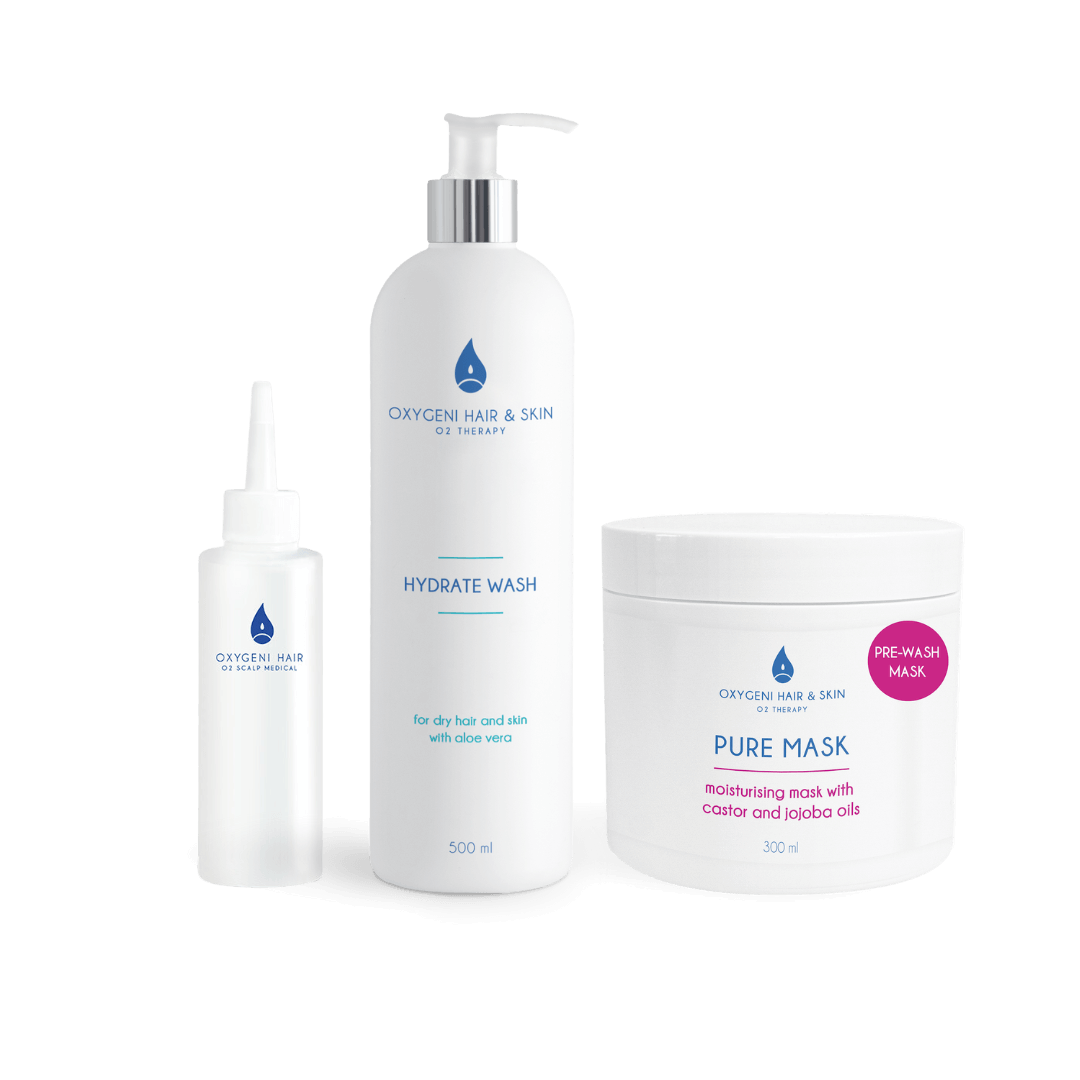
Product Bundle For A Dry Scalp
Hydrate Wash is a multifunctional product suitable for dry skin and scalp, serving as a shampoo, shower gel, and makeup remover. With its valuable ingredients, it not only has antibacterial and anti-inflammatory effects but also softens and strengthens the skin, making it particularly ideal for dry skin and scalp.
Pure Mask deeply nourishes the scalp and improves the structure of the hair strands with the help of castor, rosemary, and jojoba oil. The active ingredients contribute to hair growth, soothe the scalp, reduce irritation, and help prevent bacterial infections. It improves the resilience of hair roots against external influences, thickens hair fiber strands, and stimulates hair growth.
WHAT ELSE CAN HELP IN TREATING ITCHY SCALP?
Balanced nutrition is essential not only for your body and face but also for your scalp, so make sure that all essential nutrients are included in your diet and/or through vitamin supplementation. Itchy scalp and irritation can be a signal from your body that it’s time to do things differently: reduce stress in your life, as this can also affect your scalp.
In many cases, lifestyle changes can lead to effective results, such as eliminating stress, adopting a proper diet, and engaging in regular exercise, all of which can have a beneficial effect on the issue.
OXYGEN THERAPY AND OXYGENI HAIR PRODUCT REVIEWS
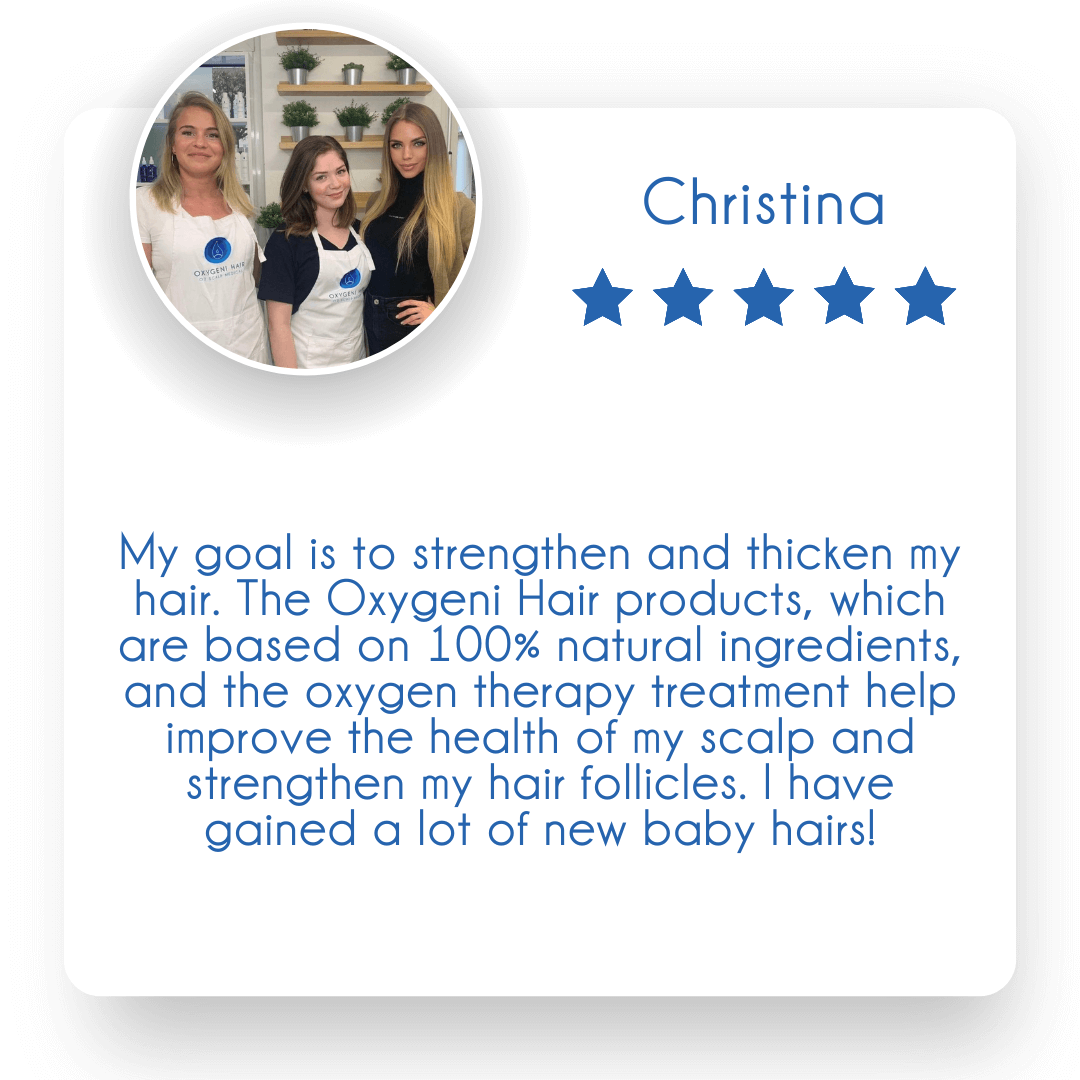

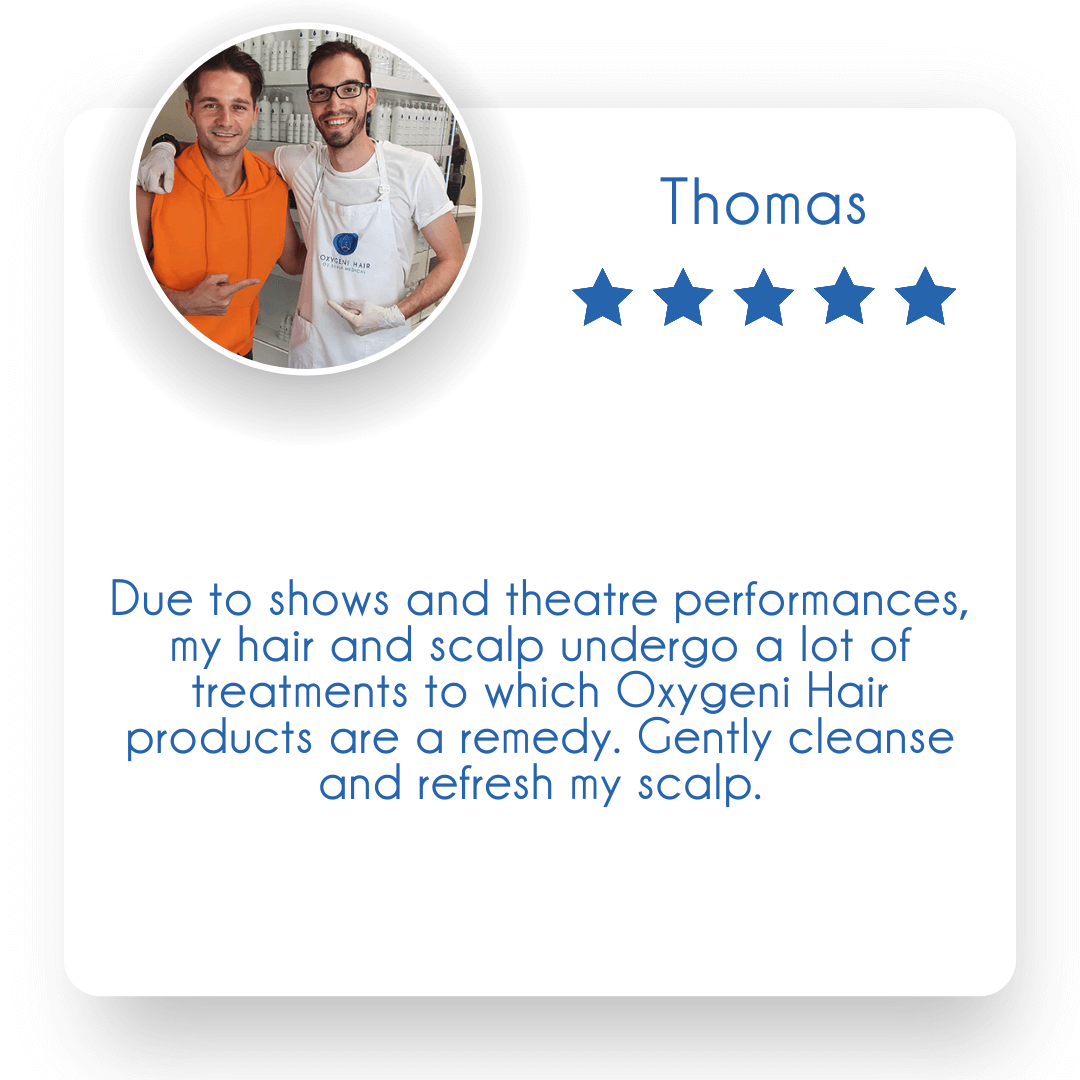
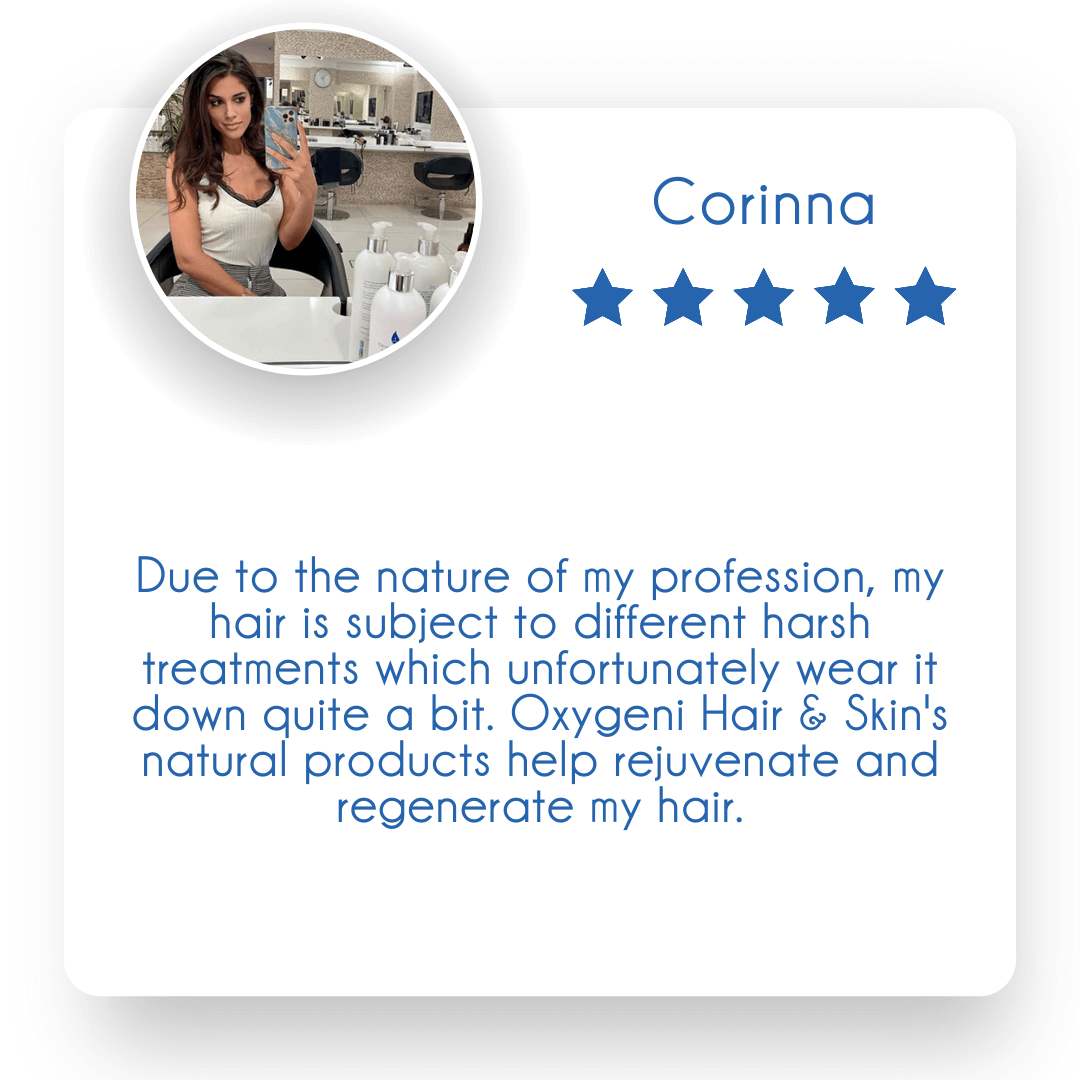
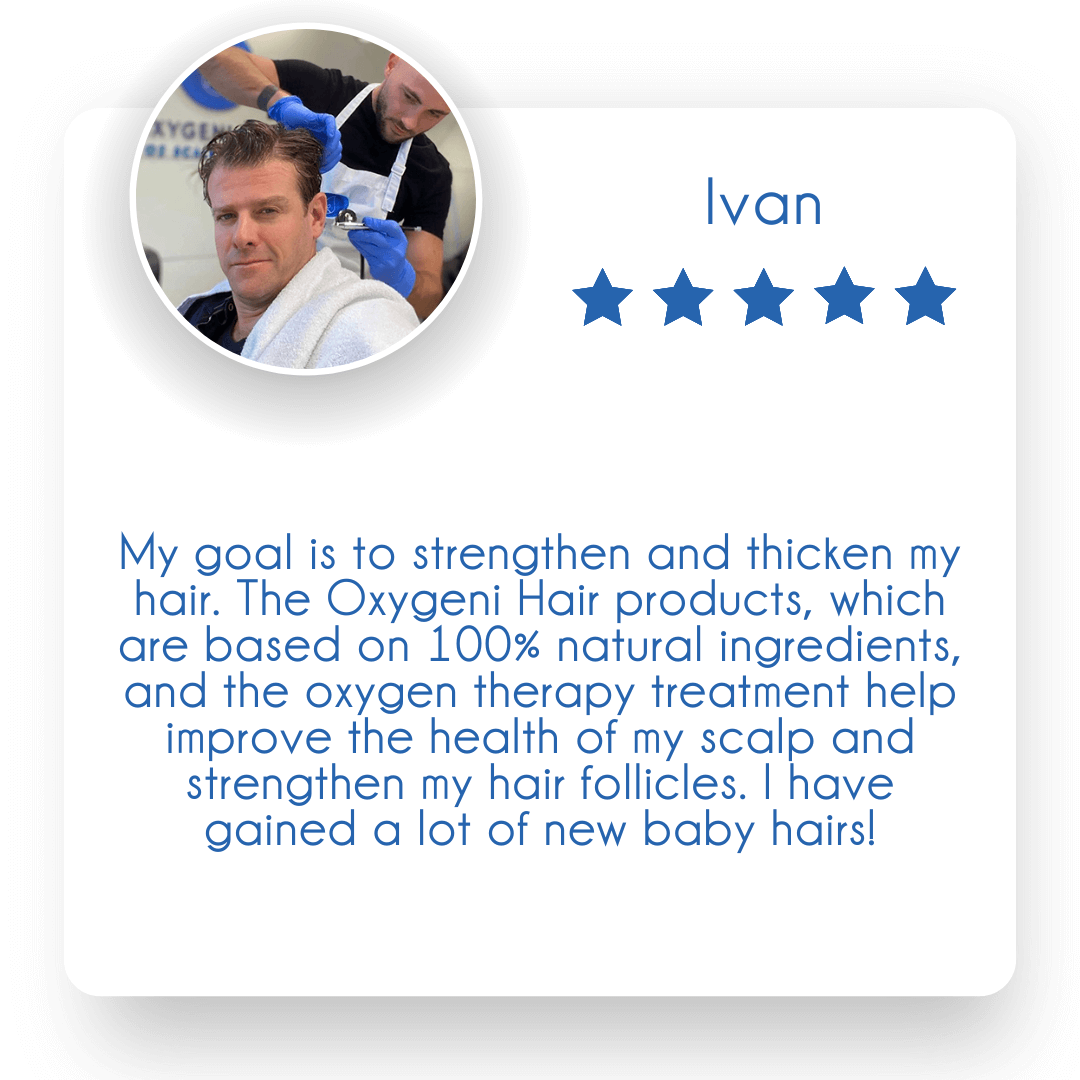
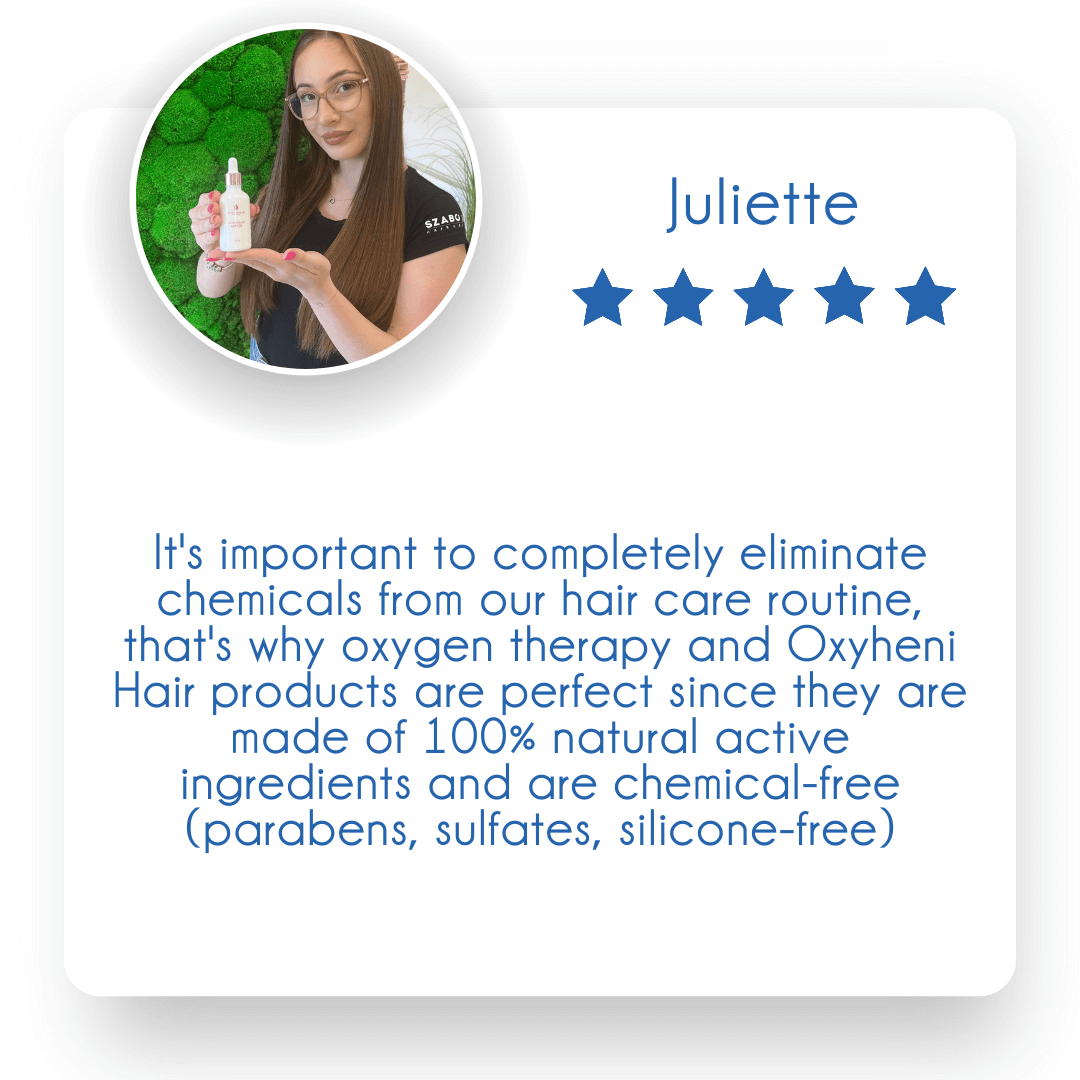
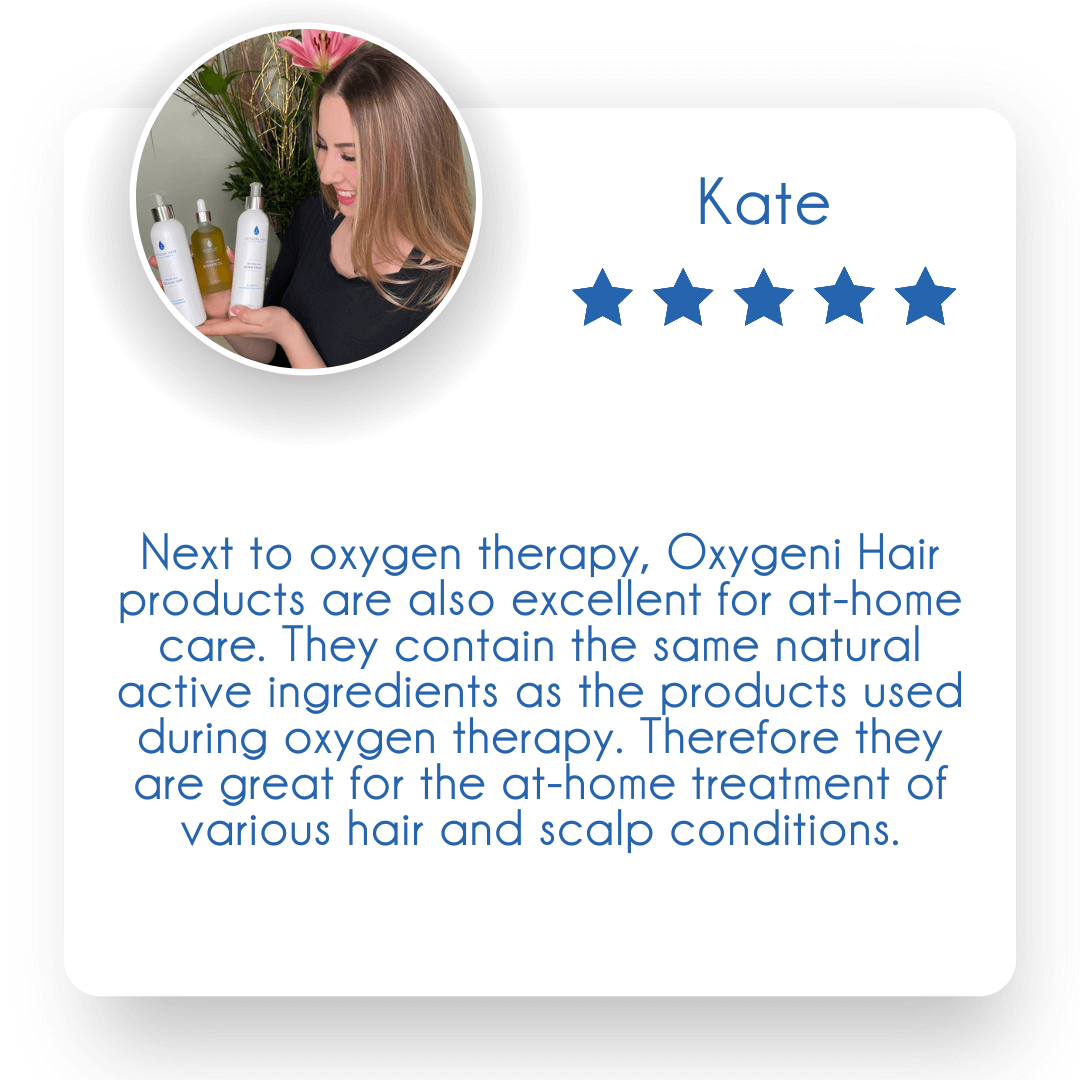
Follow us on our social media platforms!
